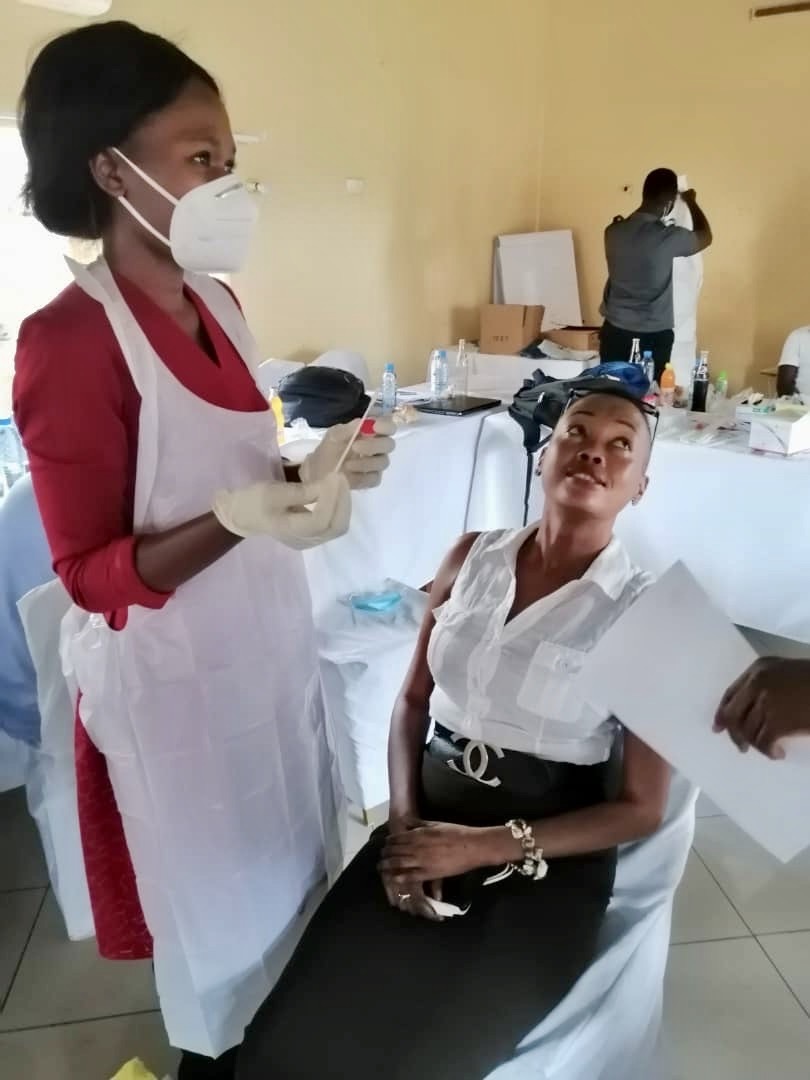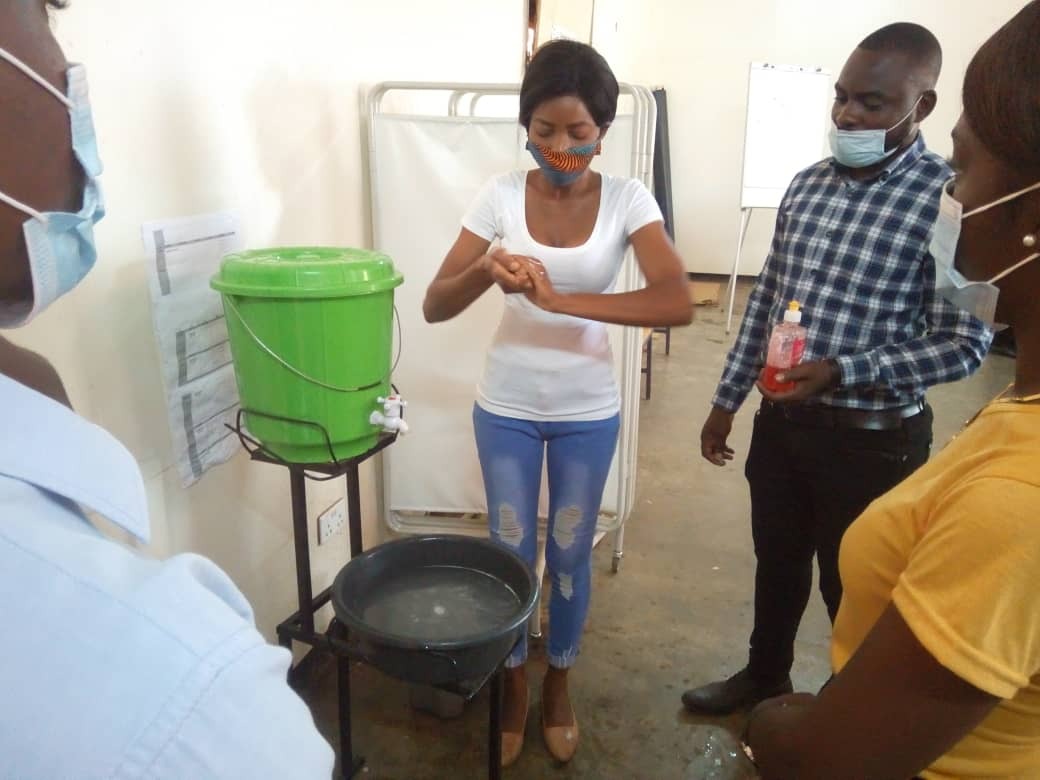In Zambia, the coronavirus outbreak was slower compared to Europe. However, at the same time, there was very little testing at the beginning which meant the numbers did not match the reality. Anyway, Zambia introduced strict measures last March to prevent the spread of the virus. The country is currently preparing to start the vaccination process.
Zambia was already affected by a weak economy even before the pandemic began. Which was also the reason why the government decided to ease some restrictions during last summer, such as the limits on gatherings and movement in the country. However, they had to introduce the measures again this January, when the country began to face the second wave of the coronavirus pandemic. So far, around 90,000 people have fallen ill and 1,226 died because of Covid-19 in Zambia, according to official figures. But as reports show, the numbers in Zambia are severely underreported, which is the reality in other developing countries as well.
decided to ease some restrictions during last summer, such as the limits on gatherings and movement in the country. However, they had to introduce the measures again this January, when the country began to face the second wave of the coronavirus pandemic. So far, around 90,000 people have fallen ill and 1,226 died because of Covid-19 in Zambia, according to official figures. But as reports show, the numbers in Zambia are severely underreported, which is the reality in other developing countries as well.
At the end of March, the government announced a plan to start the vaccination programme which should ease the impact of a third wave of Covid-19 that is expected around June and July. Stefania Lagonigro, country director of Caritas Czech Republic in Zambia, will tell us more about the current situation in the country.
Caritas’ Country Directors in Mongolia and Georgia agreed, that the biggest obstacle the pandemic has brought to their work, was that they could no longer meet with partners and donors. Was the situation similar in Zambia?
Yes, as Country Director, a great part of my job is keeping relationship with stakeholders. The measures introduced last March and the general precautions almost all the organizations follow have made it difficult to have meetings. We thus maintain all relationships online. Unfortunately, this is often complicated by connection problems and still some lack of knowledge about how to use the tools. Nevertheless, it is great to see how we are constantly adapting to current technologies and the current situation in general.
Due to the pandemic, we also had to change the way we carry out our projects. My attention was focused on the safety of the employees, the people we support and, of course, the safety of my own family. The pandemic influenced every sphere of our life.
In Zambia, Caritas Czech Republic is for example providing support to farmers or to refugees. To do this, you have to travel to the field to see these people. This cannot be done online.
Movement around Zambia is still a big challenge for us. Last March, we created a contingency plan in order to adjust our work to the Pandemic and help the common efforts in limiting chances of spread. We try to limit movement as much as possible, but it can’t always be done. We need to reach the field and the people we support, and the cheapest way to do that is by public transport. However, this is also the most dangerous form of transportation. Because our work cannot be done exclusively online, members of our team are often tested positive for covid-19.
At the same time, in many of our projects we run case-management and counselling. But due to Covid-19 home visits were among the first activities to be suspended. Case management is now done through phone calls. The absence of face-to-face interaction is a great loss in our job.
How did Zambia cope with the outbreak of the pandemic?
Due to Zambia's time advantage over Europe, measures began to be taken relatively soon. When the first two cases of Covid-19 were recorded in the country last March, strict measures were put in place by the government in order to reduce the spread. Gatherings were suspended, and when not, limited. Schools were closed, movements reduced, airports closed (except for Lusaka International Airport), restaurants were only allowed to offer take-away services. Social distance, use of mask and hand washing facilities were mandatory. Several offices switched to smart working.
These measures helped reduced the spread of the virus until about July-August, when the number of cases increased probably due to a change in weather. At the same time, the increasing testing capacity resulted in increase of the positive cases. Compared to the spring, when there was little testing.
However, Zambia has received huge support from various stakeholders (NGOs, the UN, the Catholic Church, the private sector) in order to be rady to face the pandemic.
Has Caritas Czech Republic also joined the fight against the pandemic in Zambia?
CCR is member of International NGO Forum and with our contingency plan, we joined NGOs efforts to contain chances of spread. Furthermore, thank to the funding from the Czech Development Agency in 2020 (and the Czech MFA which we just got) we have managed to carry out a project aimed at mitigating the effects of the pandemic in health and livelihood sectors. We collaborated on the project with People in Need and Mendel University in Brno. For example, we have equipped hospitals with face masks and trained their staff on how to treat covid positive patients. We also trained volunteers on how to protect communities against the virus. A part of the project was training in good hygiene and poor families received hand washing kits.
How does life in Zambia look like now?
At the surface, life in Zambia does not seem to have changed that much. Mask is mandatory in every public place; traffic has reduced; restaurants are not that full anymore; office hours for public services such as banks and government offices have been reduced but cause huge queues of people waiting for their turn.
Out of the city center, in the suburban areas and in places far from Lusaka, life still seems the same. Zambia was already facing a lot of challenges before the pandemic - the economy is on the way to the collapse, health system is weak, schools are overcrowded, floods bring up diseases and challenges in daily life, unemployment rate is dramatic. The Pandemic is another drop to an already ocean of needs.
Has vaccination against covid-19 already begun in Zambia?
At the end of March, Zambian government approved the Covid-19 vaccine programme and announced that it plans to vaccinate all citizens over the age of 18, which is about 46 percent of Zambia's 18.3 million population. More than 3.6 million people will receive vaccines from the COVAX mechanism, which aims to ensure fair access to covid-19 vaccines. Further vaccinations for some 4.7 million people will be covered by the government, with the support from other governments and donors.
Vaccination is supposed to ease the third wave of the pandemic which is expected in Zambia around June and July.
What surprised you the most about the pandemic in Zambia?
I was really impressed by the prompt response of the Ministry of Health when the first cases were recorded in March last year. So much effort was put to fight this pandemic since the very beginning and the measures were quite welcomed by everyone.
Are u interested in how the life on a mission looks like during the coronavirus pandemic? We have already published an interview about the situation in Mongolia and in Georgia. In the following article, you will find out how Iraq coped with the pandemic.










